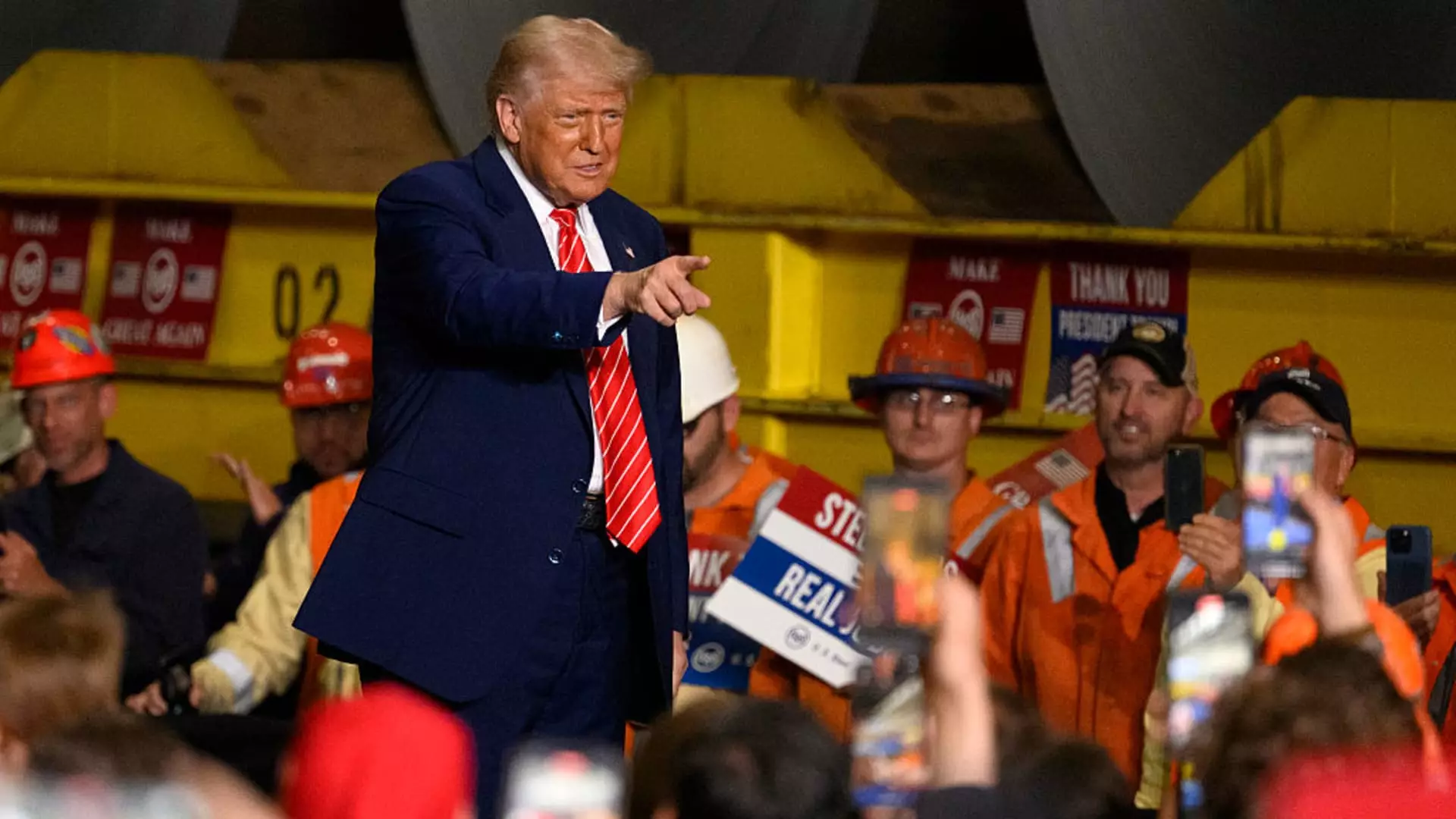In a move that echoes the titanic trade wars of the past, President Donald Trump’s decision to double tariffs on steel imports from 25% to a staggering 50% reverberates across international markets. This unilateral display of economic might is more than just a policy adjustment; it is an audacious confrontation that undermines years of negotiation and coalition-building among nations. While the administration’s narrative paints a picture of a strong economy being defended, the stark reality is one of increased volatility, threatened jobs, and strained international relations. Instead of fostering collaboration, this move sends a turbulent signal to allies and adversaries alike.
The European Union’s Stance: A Call for Cooperation
The European Union did not hesitate to express its dismay, articulating that these heightened tariffs are a significant impediment to achieving a “negotiated solution” amidst an already contentious trade landscape. The EU spokesperson’s statement, which labeled the tariff hike as regrettable, is indicative of a broader concern: the escalation of trade tensions leads to economic repercussions for consumers and businesses across the Atlantic. Markets thrive on stability and predictability, and imposing such tariffs only serves to inject poison into a system already rife with uncertainty. The EU stands prepared to impose countermeasures, demonstrating that retaliation is on the table. Such responses may only serve to deepen the rift, solidifying a trend toward protectionism rather than cooperation.
The Canadian Perspective: Jobs at Stake
From the north, the perspective of the United Steelworkers union provides a poignant lens on the ramifications of these tariffs. Their assertion that Trump’s decision constitutes a “direct attack” on Canadian workers is not merely a fleeting concern; it touches upon the heart of communities built around steel and aluminum industries. The juxtaposition of potential job losses against the backdrop of lofty political promises creates an unsettling dichotomy. Marty Warren’s urgent call for Canada to respond decisively underscores the real impact on workers and their families, highlighting that these decisions aren’t just statistics—they represent livelihoods at risk.
In the Eye of the Storm: The Manufacturing Crisis
Manufacturers, who rely heavily on industrial metals, now face an excruciating dilemma. The decision to ramp up tariffs puts added pressure on companies already grappling with supply chain challenges. Production costs will inevitably rise, and the ramifications of these costs will trickle down to the consumer level. As manufacturers grapple with the new economic landscape, the specter of layoffs and factory closures looms larger than ever. The President’s assurances during a recent rally about avoiding outsourcing sound hollow when weighed against the stark economic realities facing manufacturers across the continent.
Legal Hurdles and Policy Backlash
An interesting twist in this saga comes from the judicial branch, with the U.S. Court of International Trade putting a substantial portion of Trump’s tariffs on hold due to constitutional concerns regarding executive authority. This legal roadblock not only complicates the administration’s trade agenda but also exposes the precarious nature of relying on tariffs as a means of securing favorable negotiations. The appeals court’s swift pause of the court’s ruling brings an additional layer of complexity to an already tumultuous situation, highlighting how fragile the administration’s trade strategy truly is.
The Bigger Picture: A Shifting Landscape
These moves by the Trump administration provoke reflection on the strategy of using tariffs as a tool for international negotiations. The bigger picture illuminates a learning curve for policymakers and business leaders alike, urging a transition from confrontational tactics toward cooperative frameworks. As global markets respond to these changes, the potential for a new kind of industrial diplomacy emerges—one where alliances can be forged not through threats, but through collaboration and mutual understanding.
In a world that thrives on interconnectedness, embracing a more inclusive approach to trade could yield benefits far beyond the trade numbers, creating environments where dignity in work and commerce is prioritized over short-term gains. The tariffs may provide immediate political fodder, but it is the long-term implications of these decisions that will ultimately define our economic landscape.


Leave a Reply